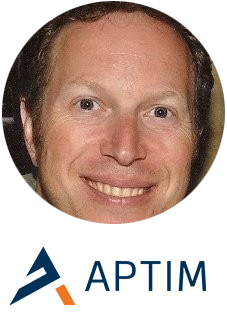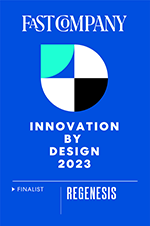 As a Senior Scientist at APTIM, a global environmental engineering company and valued REGENESIS client, Rob Mayer’s technical expertise involving in-situ remediation continues to make a positive impact on a wide range of challenging projects. Specializing in bioremediation and chemical oxidation, Mayer works as a technical manager on the design and application of in-situ remediation for current projects and proposals. Shares Mayer, “What I like most about my work is the ability to use my technical background with the ever-changing challenges associated with various project applications. I also enjoy working with and finding solutions for our clients.” He continues, “In total, I have almost 20 years in this industry. I started in the laboratory, testing remediation technologies from ISCO on bioremediation, including field implementation. I also helped develop our Polymerase Chain Reaction capabilities for detecting Dehalococcoides mccartyi in our labs, back in 2003. After that, I moved into the design and application side of the company.” His role with APTIM continues to help the company in achieving client goals and continuing to be a leader in both the technical and management aspects of environmental remediation.
As a Senior Scientist at APTIM, a global environmental engineering company and valued REGENESIS client, Rob Mayer’s technical expertise involving in-situ remediation continues to make a positive impact on a wide range of challenging projects. Specializing in bioremediation and chemical oxidation, Mayer works as a technical manager on the design and application of in-situ remediation for current projects and proposals. Shares Mayer, “What I like most about my work is the ability to use my technical background with the ever-changing challenges associated with various project applications. I also enjoy working with and finding solutions for our clients.” He continues, “In total, I have almost 20 years in this industry. I started in the laboratory, testing remediation technologies from ISCO on bioremediation, including field implementation. I also helped develop our Polymerase Chain Reaction capabilities for detecting Dehalococcoides mccartyi in our labs, back in 2003. After that, I moved into the design and application side of the company.” His role with APTIM continues to help the company in achieving client goals and continuing to be a leader in both the technical and management aspects of environmental remediation.
Choosing a career in environmental remediation came easy to Mayer. He’s enjoyed most outdoor recreation activities for as long as he can remember, sharing, “One of my longtime hobbies has been snow skiing and backpacking.” He continues, “Since I was young, I have always been interested in preserving and cleaning up the outdoors. In college I was an active member in the Student Environmental Association (SEA). While working on my biology degree I assisted on different research projects, from agricultural microbiology to stream sampling for macrovertebrates, and became very interested in environmental microbiology.” His university studies culminated with him earning his B.S. in Biology from the University of West Georgia (UWG). He then went on to earn his Master of Science in Biology, also from UWG. He continues, “University of West Georgia is a smaller university with very strong biology and chemistry departments, where students are encouraged to work in research labs and on projects as undergraduates. Their hands-on approach to teaching was a true benefit while I pursued my studies there.” To stay current with industry trends and the latest technology, he participates regularly in online calls with vendors and leading experts in his field, and attends and presents at various technical conferences. “Most recently I attended the 5th International Symposium on Bioremediation and Sustainable Environmental Technologies/Battelle, in Baltimore, MD.” When asked what he likes most about his work, Mayer points to the combination of people and the work itself. He continues, “The best part of my job is the people I work with and learn from. In addition, I really enjoy the ability to be involved on interesting projects and find impactful solutions to cleaning up a broad range of environmental issues.” And the most challenging aspect of his work? “The most demanding part of my job is to utilize all of the different aspects required, including biology, chemistry, geology, hydrology, etc. It can be difficult to keep up with the latest remediation technologies, as these are changing and evolving so quickly.”
When it comes to working with REGENESIS, Mayer appreciates the technical knowledge and teamwork that is brought to his project work. He shares, “REGENESIS brings strong technical abilities, and they also aid in making sound decisions. They are easy to work with, and that’s important. All this was evident recently on a site where we were able to distribute 3-D Microemulsion® with a very large radius of influence, around 200 ft, through small fractures.” Although APTIM uses several REGENESIS products, 3-D Microemulsion® is currently used the most. “We use many REGENESIS products, from 3DME to PlumeStop®. We use 3DME the most because many of our projects are designed to remediate groundwater contaminated with chlorinated solvents and other compounds that can be degraded by anaerobic biological pathways.”
Mayer currently resides in Knoxville, TN, with his wife and two daughters, and in his free time enjoys a variety of hobbies, from snow skiing to running and cycling. He continues, “My primary hobby is snow skiing, even though I live in Tennessee, but running, cycling and hiking are right there too. My wife and I lived in Vail for two years before moving to Knoxville. My favorite ski areas are Jackson Hole, WY and Arapaho Basin in Colorado.” To stay active in skiing, he’s a volunteer ski patroller for the Ober Gatlinburg Ski Area and the Smoky Mountain Nordic Patrol in Tennessee. When asked how he sees the future in environmental remediation, Mayer feels there’s work in remediating compounds that currently know and those we do not. I think the current trend will be to work at sites with low levels of contaminants that are near site remediation goals, but that continue to diffuse into the groundwater from low permeable zones.” And how would he encourage others to join in his field of study? He concludes by saying one must have a real interest in cleaning up the environment. After that, there are many ways to get into this field, from studying biology, geology, engineering, and other related subjects. I have seen this industry become more competitive, and therefore, driven more by cost than technical reasoning, although I think it is starting to swing back because in the long term the technical aspects save money.”
REGENESIS is proud to have Rob Mayer, Senior Scientist at APTIM, as a valued client and partner in environmental remediation, and appreciates his technical and diverse contributions in providing successful remediation outcomes for REGENESIS and its clients.


 Americas
Americas Europe
Europe Français
Français Deutsch
Deutsch Italiano
Italiano Español
Español


